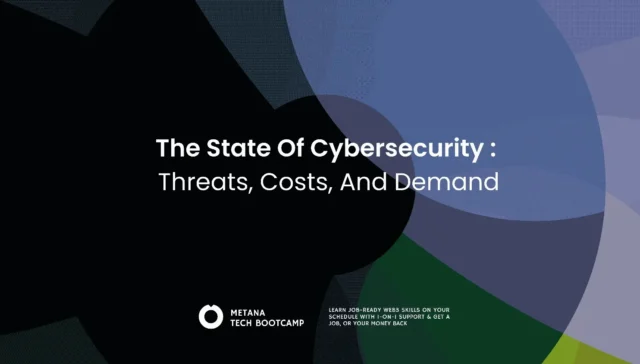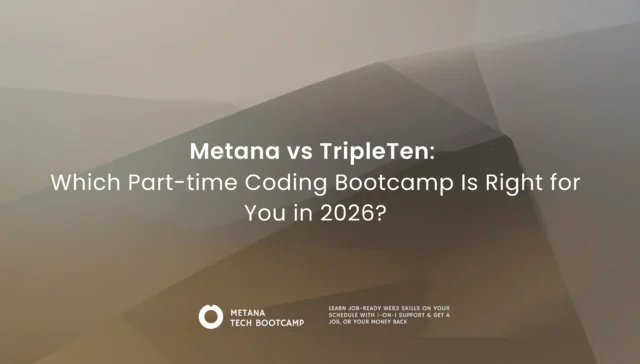Rabby Wallet is a multi-chain, open-source Web3 cryptocurrency wallet developed by DeBank that allows users to securely store, send, and manage digital assets while interacting with decentralized applications (dApps) across more than 100 blockchains. Unlike traditional wallets that require constant manual switching between networks, Rabby automatically detects and adjusts to the correct chain, making it one of the most user-friendly wallets in the Web3 ecosystem.
What is Rabby Wallet?

Rabby Wallet is designed to solve one of the biggest frustrations in Web3: the complexity of managing assets across different blockchains.
Traditional wallets like MetaMask require users to manually switch networks when interacting with different chains, which often leads to failed transactions and user errors. Rabby addresses this by automatically detecting the correct blockchain when you connect to a dApp, ensuring smoother and safer interactions.
It comes as both a browser extension and a mobile app, giving users flexibility in how they interact with decentralized finance (DeFi) protocols, NFTs, and Web3 tools. As an open-source project, its code is publicly available, giving users more confidence in its transparency and security.
Key Features of Rabby Wallet
1. Multi-Chain Support and Auto Network Detection
Unlike wallets that focus primarily on Ethereum, Rabby supports over 100 blockchains, including Ethereum, BNB Chain, Polygon, Avalanche, Arbitrum, Optimism, and more. What makes it stand out is its auto network switching feature. For example, if you’re connected to a DeFi app on Polygon but your wallet is set to Ethereum, Rabby will automatically detect and adjust without you needing to switch manually. This saves time and reduces failed transactions.
2. Transaction Simulation
Before confirming a transaction, Rabby simulates the outcome and shows users what will happen on-chain. This includes balance changes, gas fees, and potential risks. For example, if you’re about to approve a malicious contract that could drain your wallet, Rabby alerts you before the transaction is signed. This simulation feature is a critical safety net for both beginners and advanced users.
3. Security Alerts
Rabby has a built-in risk analysis system that scans transactions for suspicious activity. If a transaction involves a contract flagged as unsafe or a token with red flags, the wallet will issue a clear warning. This helps protect users from phishing attempts and rug pulls, which are common in the crypto space.
4. Gas Top-Up Feature
One common problem in DeFi is running out of native gas tokens (like ETH for Ethereum or MATIC for Polygon). Rabby solves this by allowing users to top up gas fees directly within the wallet using stablecoins or other assets. This feature prevents users from being locked out of transactions when they don’t have enough native tokens.
5. In-Wallet Swaps
Rabby integrates decentralized exchanges (DEXs) and centralized exchanges (CEXs), allowing users to swap tokens without leaving the wallet. This makes portfolio management easier and safer, as users don’t need to rely on third-party swap platforms separately.
6. Portfolio Aggregation
Users can view all their assets—tokens, NFTs, and DeFi positions—across chains in one dashboard. This gives a complete overview of a portfolio without needing to check multiple block explorers or apps.
Rabby Wallet vs. MetaMask
MetaMask has long been the most popular Web3 wallet, but Rabby introduces several upgrades that make it more appealing for multi-chain users.
| Feature | Rabby Wallet | MetaMask |
|---|---|---|
| Ease of Use | Auto network detection eliminates manual switching between blockchains. | Requires manual network switching, which often causes failed transactions. |
| Security | Transaction simulations and detailed alerts provide strong protection. | Basic warnings only, less transparency against malicious contracts. |
| Open-Source Status | Fully open-source; anyone can inspect and verify the code. | Partly open-source; some proprietary elements remain closed. |
| Multi-Chain Support | Supports 100+ blockchains natively with automatic detection. | Requires manual addition of custom networks for many chains. |
For users deeply engaged in DeFi and NFTs across multiple chains, Rabby offers a smoother and safer experience. However, MetaMask still has a larger user base and ecosystem support, making it more widely integrated with some dApps.
How to Set Up and Use Rabby Wallet

Getting started with Rabby is straightforward, even for beginners.
- Download the Wallet: Visit Rabby’s official website and install the browser extension or mobile app. Always ensure you’re downloading from the official source to avoid phishing apps.
- Create or Import a Wallet: New users can generate a wallet with a seed phrase, while existing users can import their MetaMask or other wallets.
- Add Funds: Transfer crypto assets from an exchange or another wallet. Rabby supports a wide range of tokens and chains.
- Connect to dApps: When visiting a decentralized application, Rabby automatically detects the network and adjusts for you.
- Simulate and Confirm Transactions: Before approving, review the transaction simulation to understand exactly what will happen.
This ease of use makes Rabby one of the most beginner-friendly wallets without sacrificing advanced features.
Security and Risks
Rabby is designed with safety in mind, but users should still take precautions.
- Seed Phrase Protection: Always store your seed phrase offline. If someone gains access to it, they can control your wallet.
- Beware of Fake Apps: Only download Rabby from the official website or verified app stores. Fake versions have been known to circulate.
- Smart Contract Risks: Even with simulations, interacting with new or unverified smart contracts carries risks. Rabby reduces but doesn’t eliminate this.
For example, if you were about to sign a contract that looked like a token approval but was actually granting unlimited access to a hacker’s wallet, Rabby would flag this. However, caution and personal diligence are always necessary.
Future of Rabby Wallet
Rabby’s roadmap shows strong growth potential. Recently, it launched a Points System that rewards active users, fueling speculation about a future Rabby token ($RABBY). This could follow the model of other wallets and DeFi platforms that eventually launched governance tokens.
The wallet also continues to expand blockchain support, with integrations like the XRPL EVM sidechain, which opens doors to new ecosystems. As DeFi adoption grows, Rabby is positioning itself as a go-to wallet for cross-chain interactions.
Community adoption is also increasing, especially among advanced DeFi users who value its simulations and risk alerts. If tokenization and further features are introduced, Rabby could quickly rise as a strong competitor to MetaMask in both retail and institutional spaces.
Final Thoughts
Rabby Wallet is more than just another crypto wallet—it is a tool designed to make Web3 safer, simpler, and more accessible. Its multi-chain support, automatic network detection, transaction simulations, and built-in security alerts make it one of the most user-friendly wallets available today. While MetaMask remains dominant in terms of user numbers, Rabby offers features that solve real pain points in decentralized finance.
For beginners, Rabby provides a smoother entry into the world of dApps and DeFi. For advanced users, its security tools and portfolio tracking make it an efficient all-in-one solution. With growing adoption and a promising roadmap, Rabby Wallet is positioned to play an important role in the future of Web3.
Ready to Build the Future of Web3?
If the innovation of tools like Rabby Wallet inspires you, it’s time to move from being a user to a builder. Metana offers expert-led Web3 and Solidity Bootcamps with a Job Guarantee to launch your high-paying career as a Blockchain Developer. Stop observing the future of tech—start creating it.
Frequently Asked Questions
1. What is Rabby Wallet?
Rabby Wallet is a multi-chain, open-source Web3 cryptocurrency wallet developed by DeBank. It allows users to securely store, send, and manage digital assets while interacting with decentralized applications (dApps) across more than 100 blockchains.
2. Who developed Rabby Wallet?
Rabby Wallet was developed by DeBank.
3. What platforms is Rabby Wallet available on?
It is available as both a browser extension and a mobile app.
4. Is Rabby Wallet open-source?
Yes, Rabby Wallet is an open-source project, meaning its code is publicly available for inspection and verification.
5. How does Rabby Wallet solve the problem of managing multiple blockchains?
Rabby is designed to eliminate the frustration of manual network switching. It features auto network detection, which automatically senses and adjusts to the correct blockchain when you connect to a dApp, ensuring smoother and safer interactions.
6. How many blockchains does Rabby Wallet support?
Rabby Wallet supports over 100 blockchains, including Ethereum, BNB Chain, Polygon, Avalanche, Arbitrum, Optimism, and many more.
7. Can I see all my crypto assets in one place?
Yes. Rabby offers Portfolio Aggregation, allowing users to view all their assets—tokens, NFTs, and DeFi positions—across all chains in one dashboard.
8. What is Transaction Simulation and why is it important?
Transaction Simulation is a critical safety feature. Before confirming a transaction, Rabby simulates the outcome and shows the user exactly what will happen on-chain, including balance changes and gas fees. This feature also alerts users if they are about to approve a malicious contract.
9. How does Rabby protect users from scams and suspicious activity?
Rabby has a built-in risk analysis system and security alerts that scan transactions for suspicious activity. If a transaction involves a contract flagged as unsafe, the wallet will issue a clear warning to protect users from phishing attempts and rug pulls.
10. What is the Gas Top-Up feature?
The Gas Top-Up feature solves the problem of running out of native gas tokens. It allows users to top up gas fees directly within the wallet using stablecoins or other assets.
11. How do I switch from MetaMask to Rabby Wallet?
You can easily import your existing MetaMask or other wallets by using your Secret Recovery Phrase (Seed Phrase) or private key during the setup process. This migration allows you to manage your same address and assets through the Rabby interface.
12. What is the Rabby Wallet Points System?
The Points System is a new program that rewards active users for using the wallet. It has fueled speculation about a future Rabby token ($RABBY), following the model of other platforms that have launched governance tokens.
13. Are transactions reversible in Rabby Wallet?
No. Like all blockchain transactions, once a transaction is signed and confirmed, it is generally irreversible. Rabby’s simulation feature is designed to prevent mistakes before the transaction is confirmed.







